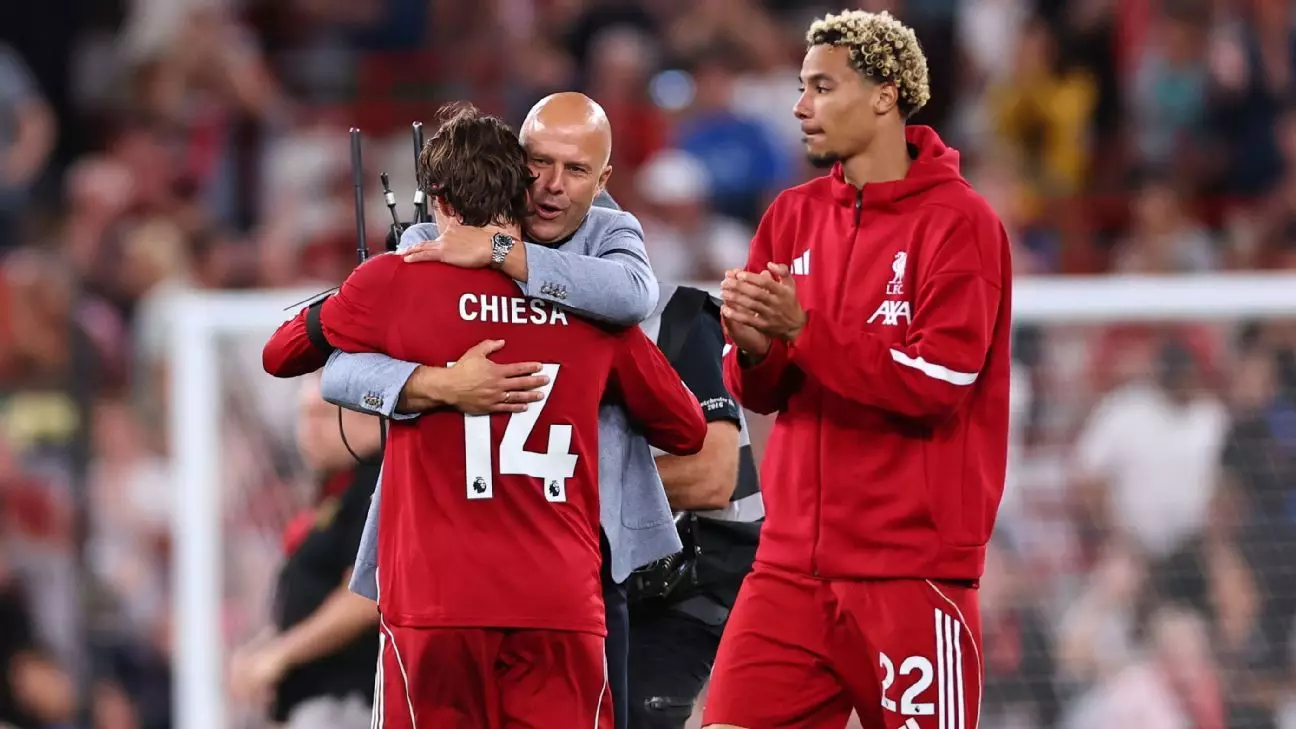Liverpool’s recent transfer activity has been a whirlwind, yet the silence from coach Arne Slot hints at a deeper strategic intent. The club’s hefty investment of over £300 million reflects a clear desire to reinforce their squad. Big-name signings like Florian Wirtz and Hugo Ekitike suggest a commitment to building a more versatile and dynamic team capable of competing on multiple fronts. However, such spending also raises questions about sustainability, squad coherence, and whether the club is truly addressing its core weaknesses. From my perspective, Liverpool’s approach seems to oscillate between a desire for immediate impact and a cautious evaluation of long-term fit.
While the summer’s spending spree indicates ambition, the real challenge lies in translating these investments into cohesive performance. The departures of players like Luis Díaz, Darwin Núñez, and Jarell Quansah have created gaps that need urgent attention, especially in attack and defense. Yet, this isn’t a club rushing to fill voids blindly; it’s striving for precision, seeking players who can elevate the entire squad rather than just ticking boxes. The reluctance to disclose specific targets hints at a strategic patience, perhaps driven by a belief that the right player will present himself—a stance I find both wise and potentially risky.
The Manager’s Perspective: Maintaining Balance Amid Uncertainty
Arne Slot’s comments reveal a manager who values stability and squad harmony. His emphasis on being “very happy” with current personnel suggests confidence in the team’s core, but that confidence shouldn’t translate into complacency. The reluctance to anticipate a busy transfer window hints at a desire to avoid unnecessary distractions and manage expectations. I believe this stance is pragmatic; a club cannot afford to overhaul its squad constantly, especially when it’s already heavily invested financially.
However, a nuanced understanding of football demands agility. If the opportunity arises to bolster the squad with a player like Giovanni Leoni or a similar talent who can genuinely improve the team’s performance, Liverpool should be willing to act. This selective approach aligns with a philosophy of quality over quantity, but the danger lies in missing out on critical reinforcements, especially in a fiercely competitive league like the Premier League.
From my standpoint, Coach Slot’s emphasis on squad happiness and minimal transfer upheaval reflects a desire for stability, yet it could also imply underestimating the need for strategic injections of new talent. If the club truly seeks to challenge at the highest level, a more proactive stance—without risking destabilization—might be necessary.
The High-Stakes Drama at St James’ Park
Liverpool’s upcoming fixture against Newcastle United encapsulates the Premier League’s intensity. The narrative surrounding Alexander Isak’s future adds a layer of tension—not only for the players involved but for fans and observers. Newcastle’s aggressive style and high energy demand respect and strategic discipline from opponents, a challenge Liverpool will need to meet head-on. The fact that Liverpool is missing Jeremie Frimpong due to injury and counting on Conor Bradley’s return emphasizes the importance of depth and tactical flexibility.
From my perspective, the Isak saga epitomizes the unpredictable nature of transfer markets. Clubs often overlook how external noise and internal uncertainty can seep into matchday performance. Liverpool’s coach correctly points out that Newcastle is a formidable opponent that thrives on its intensity. To succeed, Liverpool must not only neutralize Newcastle’s strengths but also adapt dynamically to the game’s shifting momentum. This match will serve as a litmus test for Liverpool’s squad cohesion and resilience—attributes that are often developed rather than bought.
Strategic Patience or a Missed Opportunity?
In the grand scheme, Liverpool’s cautious stance in the transfer market and the emphasis on squad happiness seem aligned with prudent management. Yet, such an approach can be a double-edged sword. In an era where rapid squad improvement often correlates with immediate results, Waiting for the perfect target like Giovanni Leoni could cost precious points in the league. I am somewhat skeptical of the club’s current blueprint, as it risks falling behind more aggressive competitors who are willing to adapt swiftly and decisively.
The club’s willingness to spend big this summer demonstrates ambition, but true success requires more than just talent acquisition. It’s about timing, integration, and fostering a cohesive team spirit. Liverpool’s future hinges on whether they can seamlessly blend new signings into a collective that is hungry for sustained excellence. If they strike the right balance, the club could yet surpass expectations; if they don’t, the lingering doubts about their strategic planning could hinder their bid for Premier League supremacy.
Liverpool’s current transfer approach reveals both strategic patience and a profound desire for stability—an intriguing mix that could either propel them to new heights or leave them vulnerable to rising competition. The key lies in their ability to adapt quickly when opportunities arise, without compromising the harmony that Coach Slot clearly values. The coming weeks will reveal whether this delicate balancing act will pay off or whether Liverpool will need to recalibrate their ambitions amidst the relentless pressure of English football’s elite.

